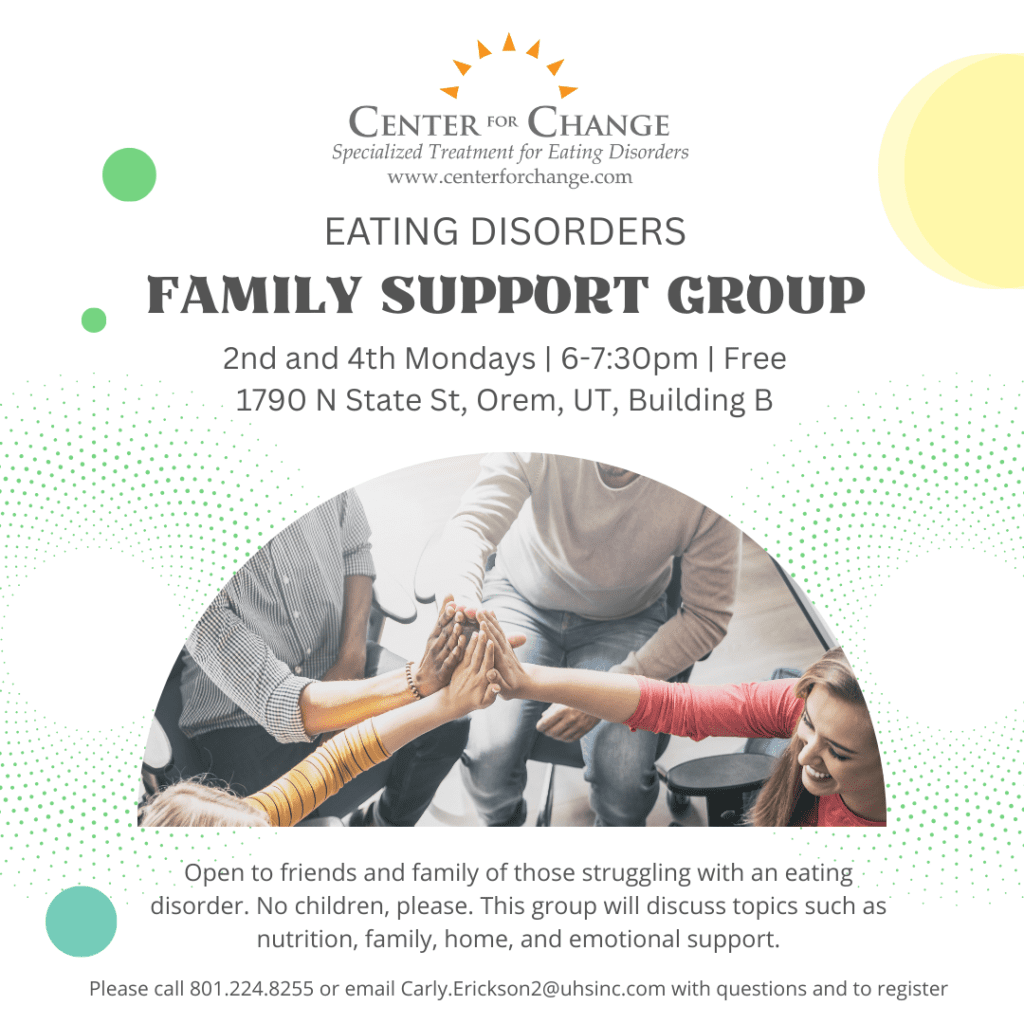Families & Friends
Help for Family and Friends
 Someone you love has an eating disorder. What now? When you realize someone close to you may be struggling with anorexia, bulimia or binge eating disorder (BED), naturally you want to know more. And when a loved one enters treatment, you want to understand what they are experiencing so that you can be as supportive as possible throughout their recovery.
Someone you love has an eating disorder. What now? When you realize someone close to you may be struggling with anorexia, bulimia or binge eating disorder (BED), naturally you want to know more. And when a loved one enters treatment, you want to understand what they are experiencing so that you can be as supportive as possible throughout their recovery.
You may already know that anorexia, bulimia and BED are complex and confusing illnesses. Now that you are past the initial shock of discovery, you may be experiencing feelings of anxiety, guilt, anger and frustration – all understandable reactions. Seeing a loved one suffer from an eating disorder is very frightening and difficult, but there are a few things you need to understand. First, the illness did not develop overnight, and recovery will not happen overnight. Second, know that there is reason to have hope. With dedication to treatment, recovery is attainable.
Today we know much more about these illnesses – what causes them, how to recognize the symptoms earlier and the steps required for recovery.
Even though you may find it difficult to understand, your loved one finds security in their eating disorder. To its victims, the illness is a powerful and misguided coping mechanism. But with treatment, enough time, and lots of love, you can look forward with hope to a day when your loved one will likely be able to break the stranglehold of this illness.

To register for our Family Support Group, please email Carly Erickson
Support Groups with the National Alliance for Eating Disorders
The National Alliance for Eating Disorders understands the significance that a community can offer individuals, providing them with a safe space where they can begin to heal therapeutically. As the only national organization in the country to provide free, weekly, therapist-led eating disorder support groups (both virtual and in-person), these communities not only aid in decreasing isolation, but provide individuals with a sense of belonging. They offer an environment of acceptance that serves as a refuge for those who may feel misunderstood and also creates a community where participants feel seen, heard, supported, and valued.
Click here to find a local or virtual support group offered by The National Alliance for Eating Disorders
Save
Your Role
You can play a critically important role in the recovery process. Your knowledge-based, appropriate actions and support can be a tremendous source of strength and comfort to your loved one. From participating in Family Week activities and family therapy to educating yourself constructive ways to provide support, you are an important part of the healing process.
Family Therapy
Family Days
Family Days 2026
- January 15-16
- February 26-27
- March 19-20
- April 16-17
- May 14-15
- June 18-19
- July 16-17
- August 20-21
- September 17-18
- October 22-23
- November 19-20
- December 17-18
















